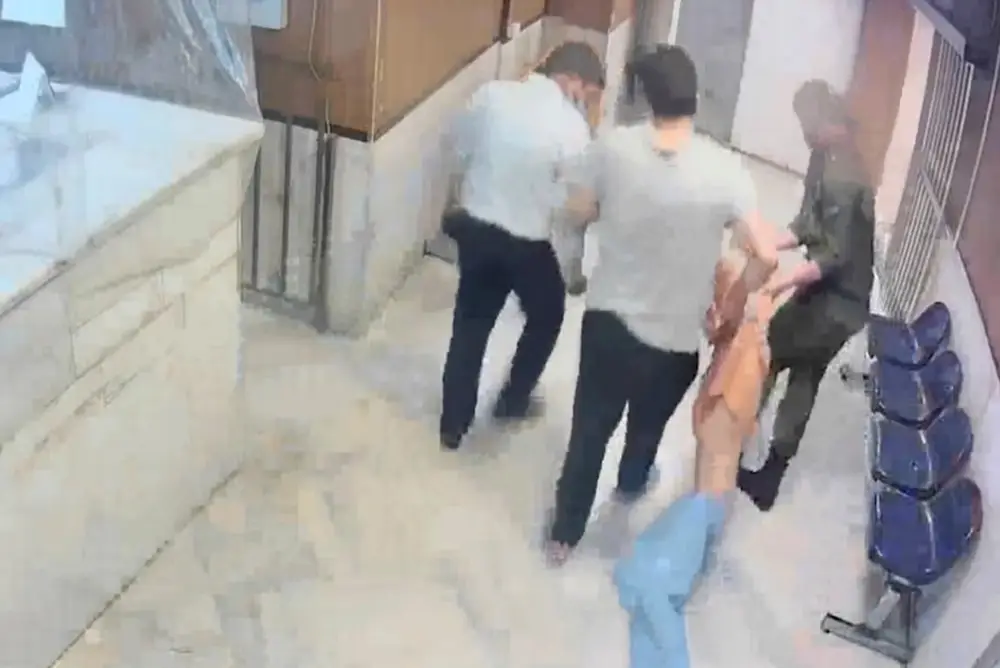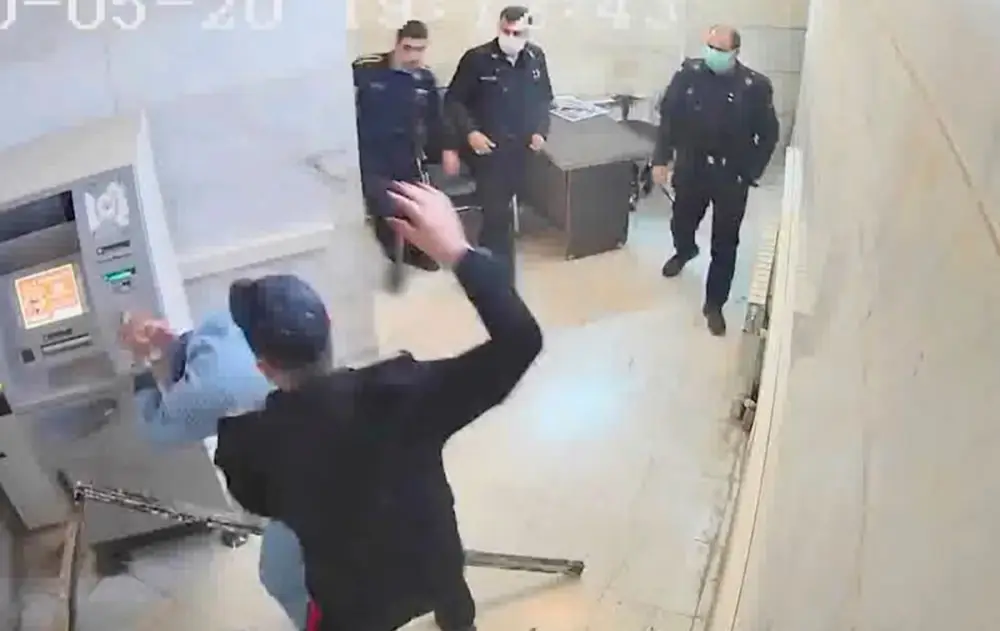Inmates in Ward Four of Tehran’s notorious Evin Prison are suffering from severe overcrowding, abysmal hygiene, and hunger, according to a human rights monitoring group.
The US-based Human Rights Activists News Agency (HRANA) has detailed the conditions in which these prisoners live, most of whom are political detainees, in a report published on Friday.
Here is an in-depth report on the prison, compiling data from previous reports and HRANA’s findings on Ward 4.
Evin Prison’s Profile
The Evin prison is Iran’s largest facility for detained political prisoners, some charged with crimes related to national security. Over the years, it has garnered international attention and criticism for its wrongful treatment of prisoners and human rights violations. In response to allegations of abuse and misconduct, both the US and the EU have imposed sanctions on Evin prison, underscoring the need for reforms within Iran’s penal system.


An incident that intensified attention, particularly, was a fire that broke out in Evin prison in October 2022 amid the nationwide Woman Life Freedom protests. Official records indicate eight prisoner fatalities and 61 injuries.
While Iranian authorities attributed the fire to prisoners, evidence collected by Amnesty International raised significant concerns that the authorities exploited the situation to justify a violent crackdown on prisoners under the pretext of firefighting and preventing escapes.
Another notable event occurred in 2021 when a hacktivist group breached Evin prison’s security cameras. The footage obtained by Edalat-e Ali from these hacked CCTV cameras revealed numerous abuses, including overcrowding, inhumane cell conditions, and instances of guards and other inmates assaulting prisoners.
Overcrowding and Hygiene Concerns
Evin prison has four halls in its ward four. Originally designed to house 120 individuals, halls 3 and 4 now find themselves overcrowded with more than 300 inmates. This overcrowding has led to cramped sleeping arrangements and heightened hygiene concerns. With inadequate space and minimal facilities, many prisoners are forced to sleep on the floor, resulting in an alarming increase in the prevalence of bed bugs and other diseases within the prison environment.
In May, Mehdi Mahmoudian, a political activist with over eleven arrests and eight years of imprisonment, reported on X that Taleghani Hospital in Tehran ceased admitting dialysis patients from Evin due to bedbug contamination.
The activist stated that the hospital provided a sample canister of bedbugs to Evin’s medical department head as evidence.
Earlier, Zia Nabavi, a student activist and political detainee, described the harsh effects of the infestation, such as sleep deprivation, before being transferred to solitary confinement.
Prison Store and Food Quality
Furthermore, the quality of prison food has come under scrutiny, with reports of physical ailments among inmates due to poor nutrition.
Many prisoners have experienced weight loss, joint pain, and difficulties concentrating, attributing these health issues to the substandard quality of the government-provided meals.


Additionally, the exorbitant prices at the prison store have made it difficult for some inmates to afford basic necessities, exacerbating their financial strain.
Recently, reports emerged that Mohammad Nourizad, a prominent writer, filmmaker, and political detainee, was transferred to solitary confinement following his protest against the escalating food prices in prison, as disclosed by his wife.
Fatemeh Maleki, in an audio clip circulating on social media, revealed that Nourizad’s objections to the rising prison food expenses in the past two months prompted his solitary confinement.
Drug Related Issues
According to HRANA’s report, the ongoing prevalence of drugs poses a substantial threat to the welfare of the incarcerated community.
This aligns with the statement made in May by Iran’s anti-narcotics police chief, who asserted that roughly half of the country’s prisoners are implicated in drug-related activities.


In 2020, Iran Wire reported the distribution of inexpensive, mass-produced narcotics within prisons. Activists like Leila Hosseinzadeh, now released, highlighted the prevalent practice of systematically drugging prisoners. Describing an incident, she recounted how, following a brawl between two inmates, one was forcibly administered a pill to silence them for several days.
Living Conditions and Protests
The dire living conditions within ward four have prompted protests among the incarcerated population. Despite repeated appeals and requests for intervention, prison officials have thus far neglected to address these grievances adequately. The overcrowding and unsanitary living conditions have significantly impacted the physical and mental well-being of the inmates, fueling their frustration and dissatisfaction.
This post was originally published on this site be sure to check out more of their content.






